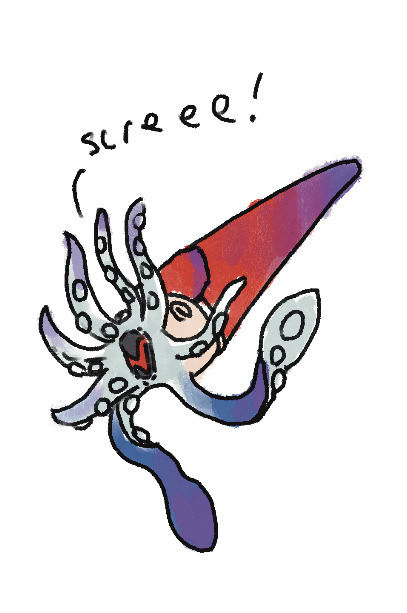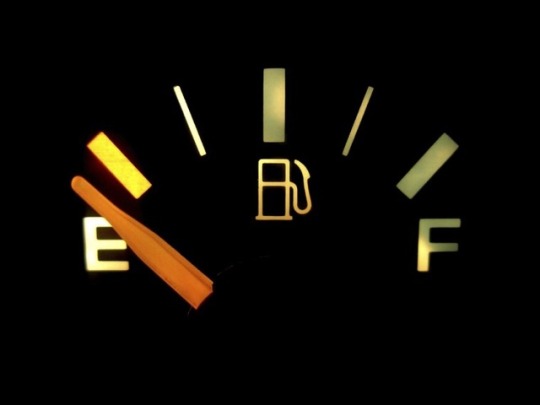#i have a big fat essay due in 48 hours
Explore tagged Tumblr posts
Text

Hello yes this is a normal gnome..

NOPE ITS A AMMONITE MIMIC
#i should be doing more productive things right now#but here i am drawing amonites pretending to be gnomes#i have a big fat essay due in 48 hours
37 notes
·
View notes
Photo

STUDY MONDAY #4: Low Energy Study Hacks I'm a student and I'm a spoonie. In spoon theory of disability and chronic illness, a person who is disabled and/or chronically ill has limited energy, or spoons, to get through the day. It can be caused by symptoms, such as pain, fatigue, brain fog, anxiety, and so on, experiences like sensory overload or a panic attack, or even by the requirement to modify your behavior (for autistic people - having to pass as neurotypical). As a result, things that may seem simple, like brushing your teeth, making your bed and cooking a breakfast, can require a lot of energy. Most spoonies can only do a limited amount of things in a day and then we get so exhausted, we have to rest or even wait for the next day to get more spoons. And as you can imagine, studying when your energy sources are limited is quite tricky. This is my list of tips and tricks that might make your spoonie student life a bit easier. 1. Get some sleep I'm putting this first because in my opinion this is the most important advice I can give you. I feel like my energy levels are very dependent on sleep quality. If I am sleep deprived, I barely have any spoons. And I'd guess it is like that for many people. So getting enough sleep should be your number one priority. I know it might sound like "just don't be depressed!". I understand. I have delayed sleep phase disorder and I've had it all my life. Melatonin pills are the only treatment that helps me. For you it might be something simple, like turning down blue light on your smartphone and drinking calming herbal tea, or something more complex, like meds and a strict sleep schedule. Not everyone will find their solution, but many will, so don't give up. You should be getting at least 7-8 hours of sleep every day. Some people need less, some need much more. If you sleep for more than nine hours and still wake up feeling groggy and tired, you might need to adjust your schedule to not wake up during the REM phase (the one where you dream the most). Experiment with alarm clock time, and find a balance that allows you to wake up without sleep inertia. And some generic advice: don't consume caffeine six hours or less before bedtime (yes that includes black/green tea and dark chocolate!), don't nap for longer than half an hour, keep your bedroom cool (almost cold) and clean and don't eat a big meal an hour before bedtime. 2. Prioritize Prioritizing is sometimes the only thing you can do when you have ten important tasks and enough energy to do just five. It starts with being honest about your abilities, as well as responsibilities, and making a realistic plan. In your to do list, the tasks should be arranged from the most important and urgent to the least important and urgent. If something can wait, it can wait - do the assignment that is due in two days. It might also mean "neglecting" things people feel are essential. You don't actually need to make your bed in the morning - it only helps the dust mites to breed. You don't actually need to take a shower every single day - once every 48 hours, or even three times a week, is enough. You won't get malnutrition if you have frozen pizza for dinner once a week - your body can manage. You can wear the same shirt for an entire week - as long as it's clean, it's unlikely people will judge you for it. And so on. I'm not saying "live like a filthy animal", but sometimes you have to cut down the amount of tasks in your daily to do list, and it's better to choose wisely. Sometimes you have to admit you will never be an A only student, and set a goal of learning as much as possible. If you need a certain average grade, calculate how many good grades you actually need and don't worry about others (as long as you pass). For example last semester I had two "I don't give a damn" subjects which I barely passed, and my average was still 4.2 out of 5. Pick easy subjects when possible! It's allowed. Get your As and Bs where you can, but don't forget to rest and take care of yourself. 3. Make compromises You will have some days when you will be able to do very little. You will have many such days. On those days, the most important thing is to do /something/. Just a little bit. Just one small thing you can manage. If you can only read ten pages of a book, do it! Ten less pages to read tomorrow. If you can only write two paragraphs of an essay, do it! Two paragraphs less to write tomorrow. Every tiny thing you will manage is an achievement, and it's progress. Don't fool yourself into thinking "that's not enough, so I won't do it at all". A tiny bit of work is still work. You will also have days when you won't be able to study at all. If you realize that nothing you try is working, it's okay to stop and take a break. Use such "useless" days to take care of yourself. Watch five episodes of your favorite show. Eat junk food. Stay in the shower for an hour. Talk to your friend (or maybe even to your cat). Listen to some good music. Relax! If you know you can't do anything today, you can either be miserable about it or enjoy a tiny holiday. I know what I would choose. 4. Waste some time When you have a lot to do, instead of panicking about it and rushing your work, slow down! Sleep an extra half an hour. Go through your morning routine as usual. Calmly examine your to do list. Prepare your study place. Take a deep breath in. Yes you just "wasted" an hour, or even more. But, you hopefully got into a calm, determined mood, and will be able to deal with stress and do your work much more effectively. Believe me, it is worth it. 5. Find low energy study methods The best form of studying for me is making study/revision notes using many different sources of information, then reciting them. I can't do it every day though. On some days my executive dysfunction is bad and I don't have energy to write study notes. That's when I use my low energy study methods. My favorite is YouTube. Crash Course is rather brief, but good when you are unfamiliar with the subject and need an introduction and a great explanation of the basics. Khan Academy is more detailed and has lectures for many different subjects. Just searching YouTube for good videos also works sometimes. For me this is an amazing study method because it is engaging enough but passive - all I need to do is watch and listen. It's not perfect, but it's better than doing nothing. Find a low energy study method that works for you and use it. It will make a huge difference on "low on spoons" days. 6. Feed your brain Your brains favorite fuel is a simple sugar: glucose. And it needs a lot of it. Human brain consumes around 20% of all calories the body needs, and it weighs less than 10% of the total body mass. When you eat carbohydrates, your body can extract sugar directly from it. When you eat fats or proteins, your body needs to metabolize them to produce sugar. Your diet should contain all kinds of foods, and you shouldn't eat too much carbs, especially simple carbs. HOWEVER. When you feel tired and can't concentrate, sometimes it's because your glucose levels are low. If you don't have metabolic issues like diabetes, a sugary snack can help get you back into working mode. Chocolate, fruits and sweet drinks like tea, coffee or juice are all great for giving you a quick sugar boost. Some people say even the taste of sweet in their mouth helps them concentrate and study, and chewing gum with an artificial sweetener is enough for that. So if you do this in moderation, a sugar boost is great for low energy studying. Just don't abuse it. It loses the effect if overused. 7. Be compassionate to yourself No matter how hard your try, sometimes life is just difficult. It's okay. It's okay to fail a test or an exam, it's always a learning opportunity. It's okay to not get the grades you wanted, it can be a totally random thing. It's okay to miss class sometimes, everyone does it. It's okay to take breaks, you earned them. It's okay to ask for help, you deserve it. Measure your success by how hard you tried, not the result you got. And be kind to yourself. If you did your best (which definitely doesn't mean exhausting yourself to a point of mental breakdown), it's enough. That's all I have to share. Hope it helps. What are your low energy tips and tricks? Share them in the replies!
106 notes
·
View notes